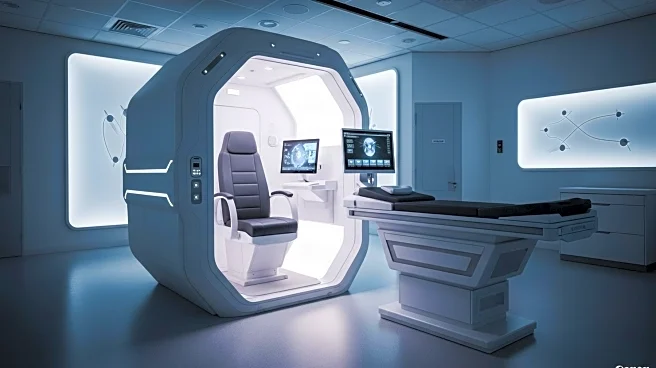What's Happening?
On September 27, President Donald Trump shared an AI-generated video on his Truth Social account, promoting a conspiracy theory about 'medbeds'—alleged cure-all medical devices. The video, which mimicked a Fox News segment, falsely claimed that every American would soon receive a 'medbed card.' This conspiracy theory, rooted in the QAnon movement, suggests that these medical beds exist but are being withheld from the public. The video has since been deleted. The incident highlights the ongoing issue of medical misinformation on social media, especially when disseminated by prominent figures. According to a 2024 poll by the Kaiser Family Foundation, a significant number of Americans encounter false health information online, often struggling to discern its accuracy.
Why It's Important?
The spread of medical misinformation, such as the 'medbed' conspiracy, poses real-world risks by undermining public trust in healthcare and potentially leading to harmful health decisions. Misinformation can cause mental and physical fatigue, as noted by David Novillo Ortiz from the World Health Organization, and can erode trust in government and public health messaging. This is particularly concerning given the role of social media in rapidly disseminating false information to large audiences. The incident underscores the need for improved digital health literacy and critical evaluation of online health information. It also highlights the responsibility of public figures to avoid spreading unverified claims that could harm public health.
What's Next?
In response to the spread of such misinformation, experts emphasize the importance of distinguishing between accidental misinformation and intentional disinformation. Public health organizations and experts are likely to continue advocating for better digital literacy and critical thinking skills among the public. There may also be increased calls for social media platforms to implement stricter measures to prevent the spread of false health information. Additionally, healthcare professionals are encouraged to engage with patients about online health information, helping them to verify and understand the accuracy of what they encounter.
Beyond the Headlines
The incident with President Trump's video highlights broader ethical and societal challenges related to the use of AI-generated content and its potential to mislead. As AI technology becomes more sophisticated, the ability to create realistic but false content increases, necessitating new strategies for verification and trust-building in digital communications. This situation also raises questions about the accountability of public figures in the digital age and the impact of their statements on public perception and behavior.









